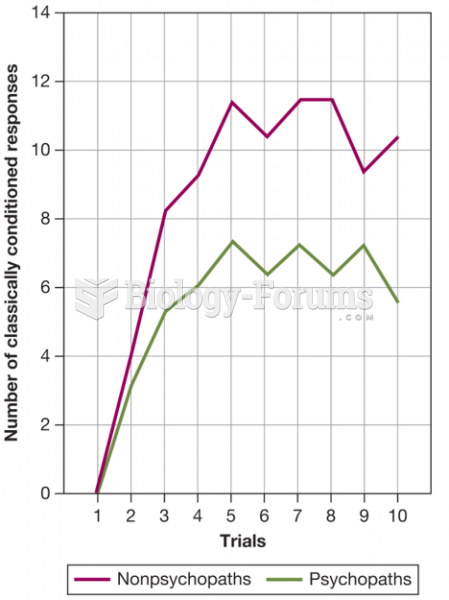This topic contains a solution. Click here to go to the answer
|
|
|
Did you know?
Vampire bats have a natural anticoagulant in their saliva that permits continuous bleeding after they painlessly open a wound with their incisors. This capillary blood does not cause any significant blood loss to their victims.
Did you know?
The modern decimal position system was the invention of the Hindus (around 800 AD), involving the placing of numerals to indicate their value (units, tens, hundreds, and so on).
Did you know?
The first documented use of surgical anesthesia in the United States was in Connecticut in 1844.
Did you know?
Blood is approximately twice as thick as water because of the cells and other components found in it.
Did you know?
The horizontal fraction bar was introduced by the Arabs.
 The visual field as seen by a person with (a) glaucoma, (b) macular degeneration, and (c) cataracts.
The visual field as seen by a person with (a) glaucoma, (b) macular degeneration, and (c) cataracts.
 Positron emission tomography (PET) image showing the difference in the metabolic activity of the bra
Positron emission tomography (PET) image showing the difference in the metabolic activity of the bra





